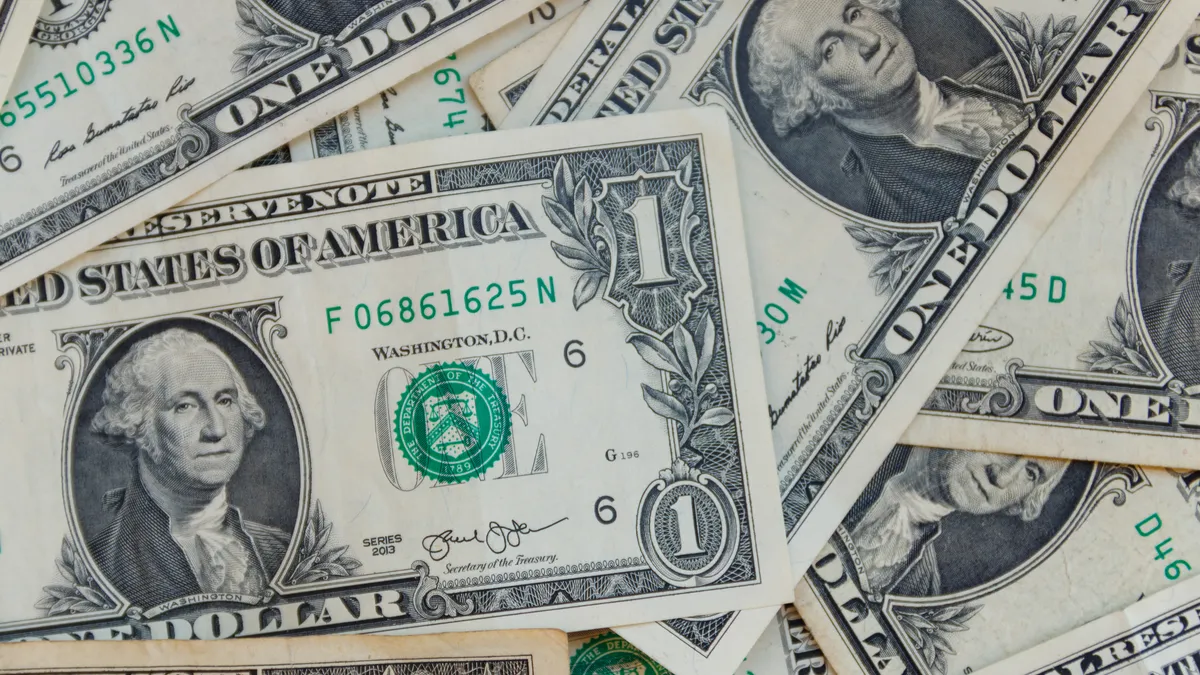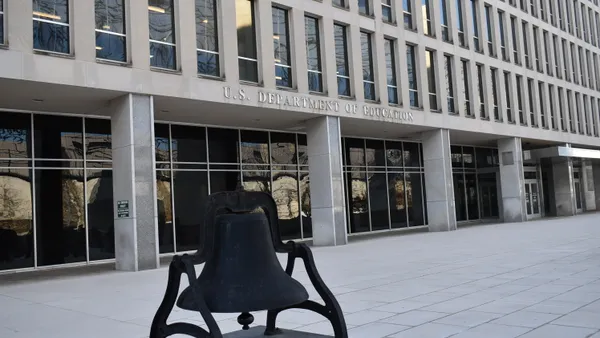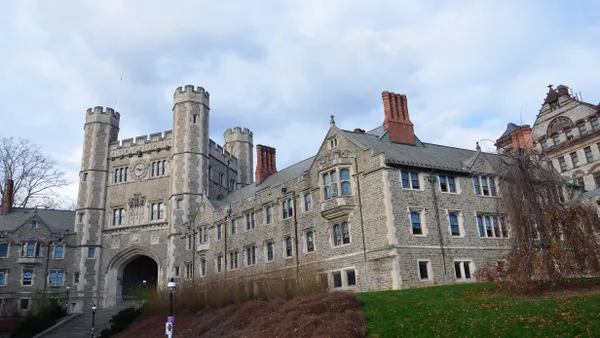Dive Brief:
- The U.S. Department of Education on Wednesday reminded colleges of their legal obligation to inform students of the costs and conditions of taking out private loans, including income-share agreements.
- In an online notice, the department highlighted a recent finding by the Consumer Financial Protection Bureau that laws and regulations concerning private loans apply to ISAs, a controversial arrangement in which college graduates pay back expenses like tuition and fees through a portion of their income over a set timeframe.
- The Education Department also said it intends to work with federal agencies to provide colleges later this year with more information on how to improve reporting related to preferred lender arrangements. Under these deals, colleges endorse or promote private lenders' loan products often in exchange for incentives, such as paying for financial aid brochures and other materials.
Dive Insight:
ISAs have been an oft-debated way for students to use money from outside of the federal student loan program to help pay for the cost of college.
A contingent of higher education experts back such arrangements, saying they can ease students' financial burdens by offering income-based repayments. Often, graduates are exempt from monthly payments if they fall below a certain income level.
But the deals have also come under fire. Critics charge ISAs do not offer students a sense of the true cost of paying for college and may amount to more debt.
Whether they should be considered loans has also been contested, as financial debts are subject to strict consumer financial protections.
The CFPB's announcement in September offered some clarity on this matter.
The agency's acting director said at the time ISA providers "tried to evade oversight" by claiming their products weren't loans. In a consent order, it required a Virginia-based nonprofit, Better Future Forward, to no longer state that its ISAs are not loans, to provide new lending disclosures and tweak its ISA contracts.
Better Future Forward did not suffer financial penalties.
And last month, the CFPB said it would review operations of colleges that offer private loans directly to students.
Department officials indicated Wednesday they will monitor colleges' actions on this front, suggesting a federal crackdown on institutions that offer and endorse shoddy loan repayment deals.
The department said that like the CFPB, it considers ISAs private student loans. Under agency rules, colleges must publicly document why they endorse privately-held student loans, Rich Williams, chief of staff in the Office of Postsecondary Education, wrote in an Education Department blog post.
Institutions must also adhere to a federal conduct code that prohibits revenue-sharing agreements with private lenders and eliminates other conflicts of interest, Williams wrote.
Williams added students should exhaust loans issued by the federal government before turning to private ones, as the latter lack the robust consumer and repayment protections built into federal loans.
"For students who still find themselves in need of additional loans to pay for college, the Department is committed to making higher education more accessible and affordable by supporting good practices that protect borrowers, so students don't graduate with mountains of debt they can't repay," Williams wrote.















